How to Become a Game Developer in 2023 – An Amazing Guide
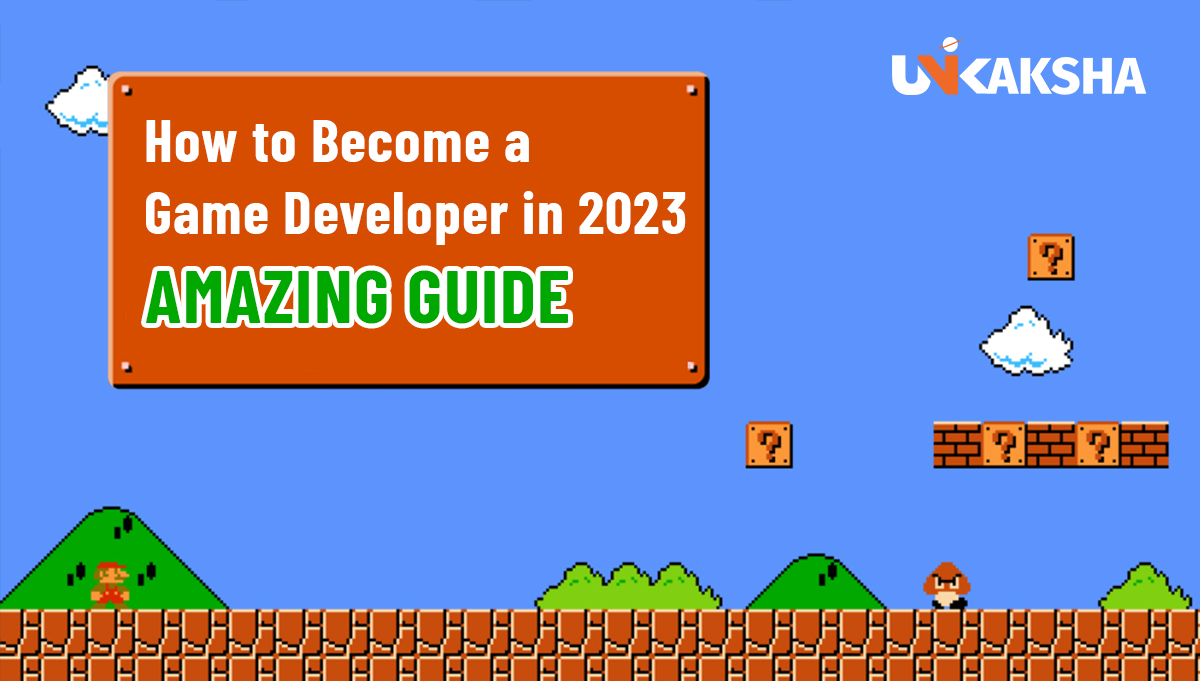
Greetings, fellow gamers, and aspiring game developers!
We heard that you have a burning passion for gaming and a desire to create immersive experiences for others but do not know where to start. Do not worry, we got you the complete roadmap on how to become a game developer in 2023.
Grab your controllers, power up your PCs, and let’s dive into this adventure and become a Game Developer today!
What Does a Game Developer Do?

Before we embark on our quest, let’s understand the role of a game developer.
Game developers are the masterminds behind the games we love to play. They bring ideas to life by designing captivating gameplay mechanics, creating stunning artwork and visual effects, writing compelling narratives, and coding the intricate systems that make games come alive.
Game development is a collaborative process that requires teamwork, problem-solving skills, and a deep understanding of player engagement. As a game developer, you have the power to craft unforgettable experiences that captivate and entertain players.
How to Become a Game Developer:
a) Understand and Play Games:
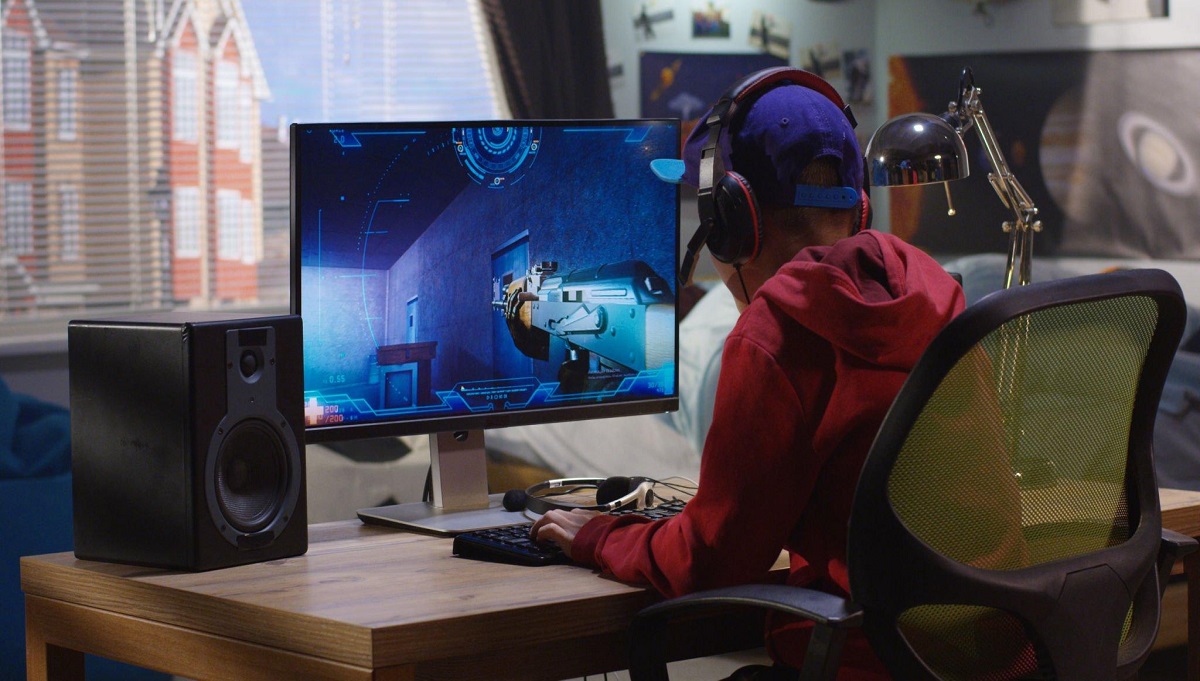
To become a successful game developer, you must be a gamer yourself. Playing games is not just a hobby, it’s an essential part of your game development education. You don’t have to be a pro, but having basic knowledge and a genuine interest in games is crucial.
Immerse yourself in different genres, platforms, and gaming experiences. Play games with a critical eye, analyzing mechanics, level design, and player engagement. Engage in discussions with other gamers to gain insights into what makes a game enjoyable.
Remember, being a gamer is the first step towards understanding how to create captivating games.
b) Improve Your Understanding of Physics and Gravity:
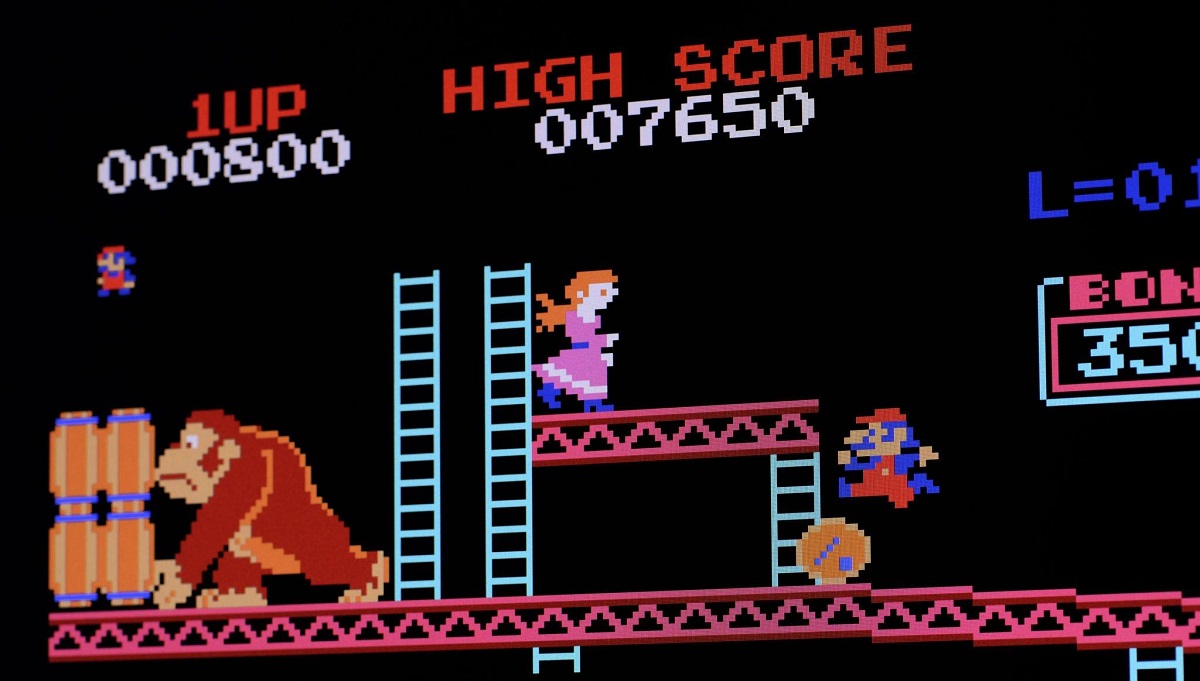
In the virtual worlds of games, physics, and gravity play crucial roles in creating realistic and immersive experiences. To enhance your game development skills, it’s essential to have a solid understanding of these principles.
Dive into resources that explain concepts like collision detection, object behavior, and simulated physics. Explore the relationship between physics and gameplay mechanics, such as how gravity affects character movements or objects interact with the environment.
By grasping these fundamentals, you’ll be able to design game mechanics and interactions that feel grounded in reality.
c) Improve Your Programming and Math Skills:
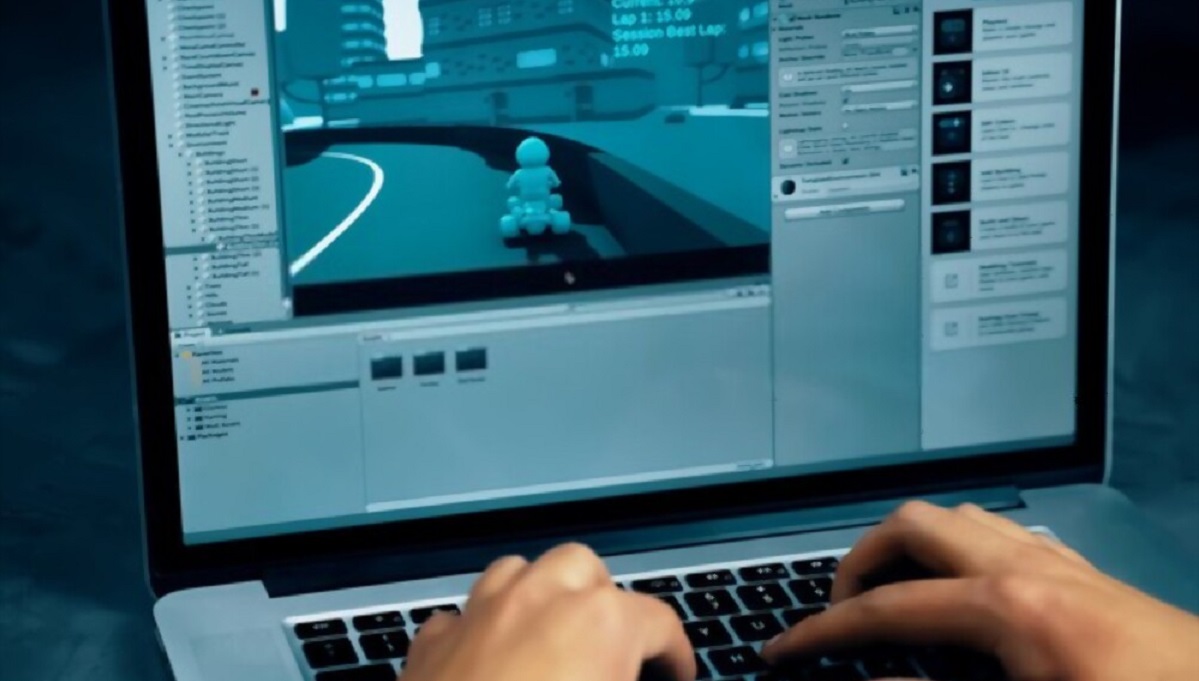
Programming is the backbone of game development. It empowers you to bring your ideas to life and breathe functionality into your games. For beginners, start by learning a beginner-friendly programming language such as Python or JavaScript. These languages offer a gentle learning curve and are widely used in the game development community.
Additionally, familiarize yourself with game development software and tools such as Unity or Unreal Engine . These powerful engines provide a visual interface that simplifies game development, allowing you to focus more on creativity.
As for math skills, focus on understanding concepts like geometry, trigonometry, and linear algebra. Strong math skills are essential for tasks such as physics simulation, AI programming, and game balancing. By improving your programming and math skills, you’ll have a solid foundation to create amazing games.
Related : Top 6 Python Frameworks for Game Development
d) Understand Lighting and Color:

Visuals play a significant role in game development, and understanding lighting and color is key to creating captivating experiences. Dive into the world of lighting and color theory.
Learn about different lighting techniques, such as ambient lighting, point lights, and spotlights, and their effects on the atmosphere and mood. Experiment with color palettes, contrast, and saturation to evoke specific emotions in your players. Understand the principles of color theory, including complementary colors, color harmony, and color psychology.
Applying your knowledge of lighting and color will enable you to craft visually stunning and immersive game environments.
e) Get Good at Storytelling:
Games are more than just gameplay; they also tell stories that engage and captivate players. To become a skilled game developer, hone your storytelling abilities.
Study narrative structure, character development, and world-building techniques. Learn from various mediums, including books, movies, and other games. Practice writing short stories or creating interactive narratives to sharpen your storytelling skills. Understand the importance of pacing, plot twists, character arcs, and player agency in crafting compelling narratives.
By becoming a master storyteller, you’ll create games that resonate with players on a deeper level.
f) Start Building Your Portfolio:

Now that you have honed your skills and gained a solid understanding of game development, it’s time to start building your portfolio. Creating your own game projects is an excellent way to showcase your talent and demonstrate your abilities to potential employers or clients. Start with small-scale projects that align with your interests and gradually challenge yourself with more ambitious endeavors. Participate in game jams, where developers create games within a limited time frame. Game jams allow you to collaborate with others, experiment with new ideas, and refine your skills.
Additionally, consider contributing to open-source game projects or creating mods for existing games to showcase your creativity. Document your process, highlight your contributions, and show your growth as a game developer through your portfolio.
g) Freelance or Apply for Jobs:
While freelancing may seem appealing, it’s important to note that the competition is fierce in today’s market. As an aspiring game developer, consider starting with an entry-level job to enhance your skills and gain industry experience.
Apply to game development studios, indie game companies, or larger tech companies with game development departments. Look for opportunities where you can learn from experienced professionals, collaborate with talented teams, and contribute to exciting projects. Entry-level positions such as QA tester, junior programmer, or art intern can provide valuable insights into the game development process.
Remember, every opportunity is a stepping stone towards your dream career.
h) Join Communities:
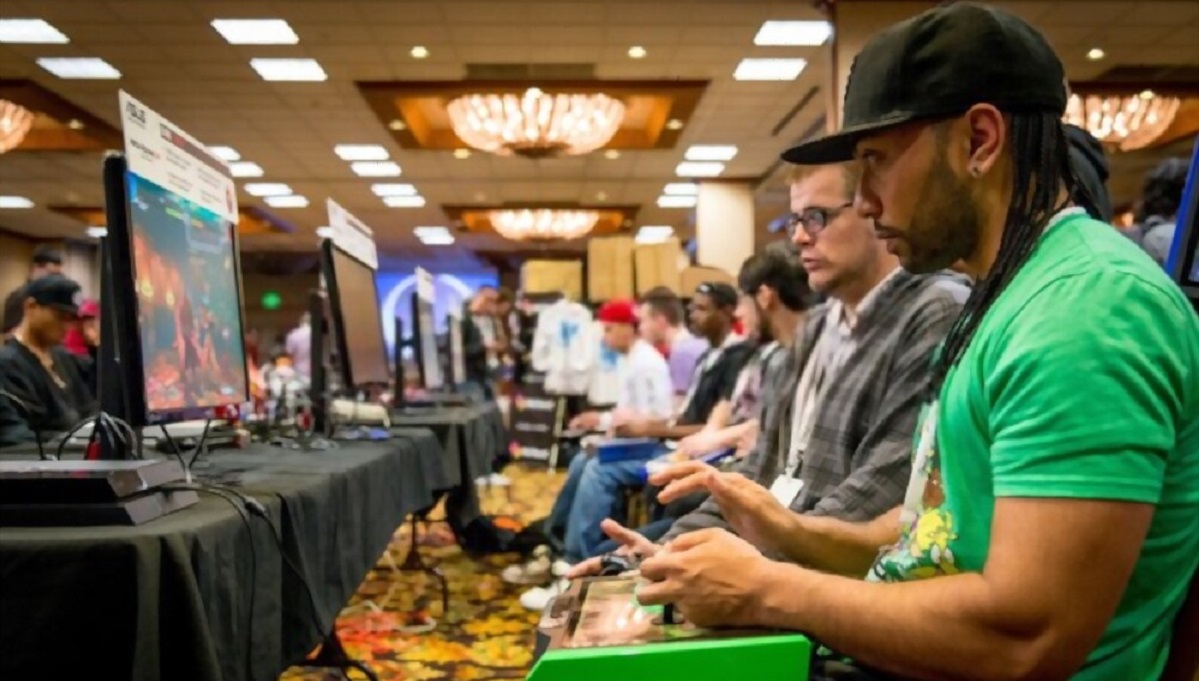
Game development is not a solitary pursuit. Joining game development communities can be a game-changer for your career. Engage with fellow game developers, share your experiences, and learn from their insights. Participate in forums, Discord channels, and social media groups dedicated to game development. Attend game development conferences or local meetups to connect with industry professionals and expand your network.
Being part of a community not only provides support and inspiration but also opens doors to potential collaborations and opportunities.
Additional Skills You Can Include :
In addition to the core skills mentioned above, there are several other skills that can further enhance your game development prowess. These skills include:
a) Sound Design :
Creating immersive audio experiences that enhance gameplay and atmosphere.
b) Level Design:
Crafting engaging and well-structured game environments.
c) UI/UX Design:
Creating intuitive and user-friendly interfaces for a seamless player experience.
d) Game Marketing:
Promoting and monetizing your games effectively to reach a wider audience.
Congratulations on completing this extensive guide on how to become a game developer in 2023!
Remember, game development is a thrilling and ever-evolving journey that requires passion, dedication, and continuous learning. Embrace your creativity, stay curious, and never stop playing and creating. With perseverance and the right set of skills, you can turn your passion for gaming into a rewarding and fulfilling career as a game developer.
So, embrace your imagination, start building, and let your games inspire the world!
Happy gaming and game development!
Frequently Asked Question
The length of time it takes to become a game developer can vary, but on average, it may take around 12 to 24 months of dedicated learning and practice.
Becoming a game developer can be challenging as it requires a combination of technical skills, creativity, and perseverance. However, with dedication, learning resources, and practice, it is achievable for those passionate about the field.
While not every game requires advanced physics, having a basic understanding of physics is beneficial for game development, especially for creating realistic movements, collisions, and interactions.
To become a game developer without a degree, focus on building a strong portfolio and gaining practical experience through self-study, online resources, and collaborations. Continuous learning and a robust portfolio can outweigh the absence of a degree in the industry.
About the Author
Luqmaan Shaik serves as the Blog Specialist at Unikaksha, where he leads a team of technical writers dedicated to researching and providing valuable content for blog readers. With a wealth of experience in SEO tools and technologies, his writing interests encompass a wide range of subjects, reflecting the diverse nature of the articles. During his leisure time, he indulges in an equal balance of web content and book consumption.
 Related Posts
Related Posts
|
Offerings
|
FutureFirst
|
SmartStart
|
GradEdge
|
SelfMastery
|
|---|---|---|---|---|
|
Doubt clearing session
|
                                          |
                                          |
                                          |
                                          |
|
No of job opportunities
|
15 | 25 | 15 | 3 |
|
Course Access
|
5 Years | Lifetime | Lifetime | 5 Years |
|
Free Library Courses
|
                                          |
                                          |
                                          |
                                          |
|
Job Assurance
|
                                          |
                                          |
                                          |
                                          |
|
Language
|
English/Hindi | 5 Language options | English/Hindi | English/Hindi |
|
Live classes
|
100% | 100% | 100% |                     |
|
Offline
|
                                          |
                                          |
                                          |
                    |
|
Industry Expert Sessions
|
                    |
                                          |
                    |
                    |
|
Internship (IOP)
|
                                          |
Guaranteed | Guaranteed | Based on evaluation |
|
1:1 Mentoring sessions
|
                    |
                                          |
                    |
                    |
|
Customer Support
|
                                          |
                                          |
                                          |
                                          |
|
Dedicated Program Manager
|
                    |
                                          |
                    |
                    |
|
Opt for Placement services
|
Compulsary |                                           |
                                          |
                                          |
|
Career Support
|
1 Year | 18 Months | 1 Year | 3 Months |
|
Regular assessments
|
                                          |
                                          |
                                          |
                                          |
|
Report cards
|
                                          |
                                          |
                                          |
                    |
|
Career Guidance
|
                                          |
                                          |
                                          |
                    |
|
Certificates
|
                                          |
                                          |
                                          |
                    |
|
Scholarship
|
                                          |
Available | Available |                     |
|
Trial Class
|
1 week | 1 week | 1 week |                     |
|
Outside placement
|
Paid | Allowed | Allowed | Allowed |
|
Premium Jobs
|
                    |
                                          |
                    |
                    |
